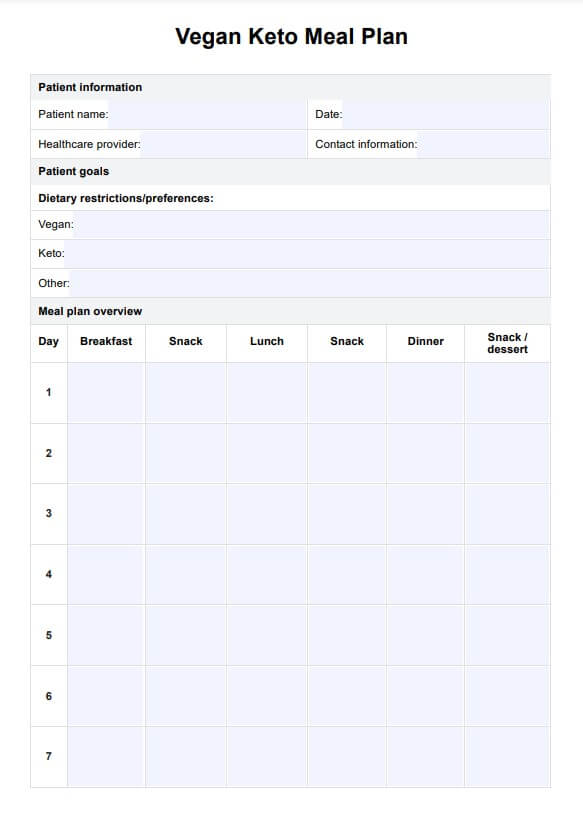Yes, the Vegan keto diet is possible. It combines the principles of the vegan diet with the low-carb, high-fat focus of the keto diet, relying on plant-based sources of fats and proteins like avocados, nuts, and seeds.

Vegan Keto Meal Plan
Explore expert-crafted Vegan Keto Meal Plans designed for healthcare professionals. Nutrient-dense, plant-based recipes for optimal health.
Use Template
Vegan Keto Meal Plan Template
Commonly asked questions
The vegan ketogenic diet may promote more effective weight loss due to its ability to increase fat metabolism and reduce carb intake. However, individual results vary based on adherence and overall nutrition.
Good vegan keto protein options include tofu, tempeh, hemp seeds, almond butter, and plant-based protein powders like pea or hemp protein. These are low in carbs and high in protein, supporting the needs of a vegan keto meal plan.
EHR and practice management software
Get started for free
*No credit card required
Free
$0/usd
Unlimited clients
Telehealth
1GB of storage
Client portal text
Automated billing and online payments











